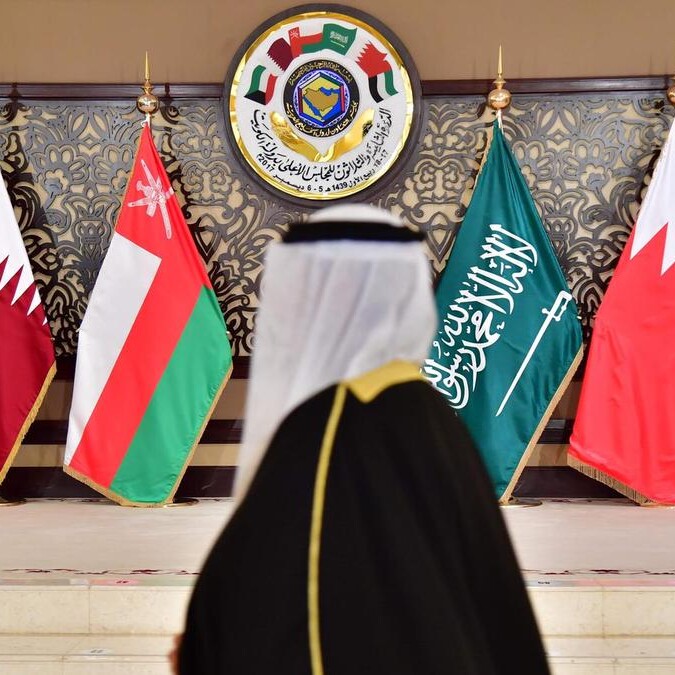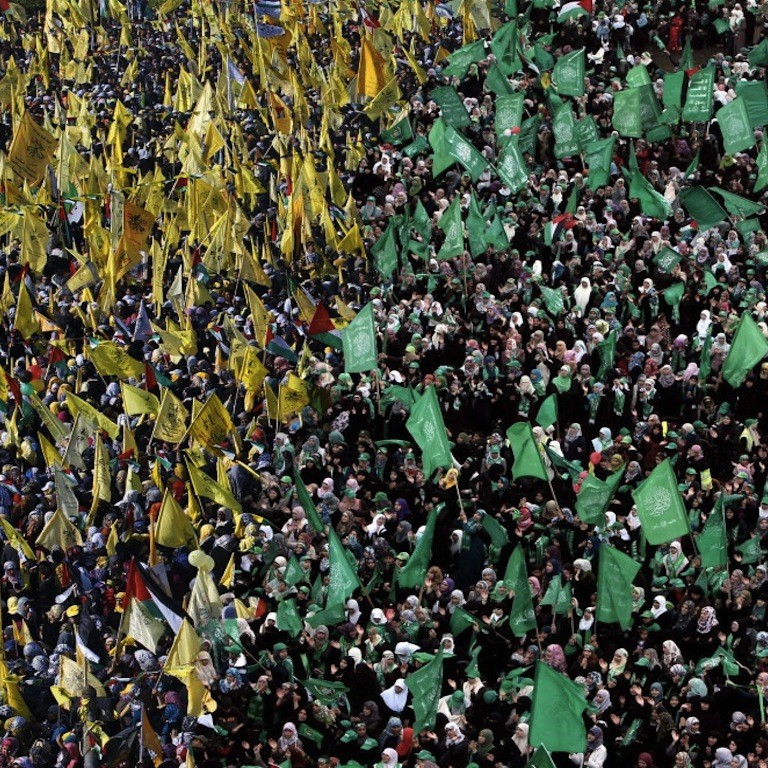Russia received the best possible gift from the Trump administration right before Christmas and now has a free hand to determine the future of its troubled Middle Eastern ally. With the United States preparing to exit the Syrian conflict, the Kremlin’s strategy won’t change much. That’s because it was never about Syria from the beginning.
Projecting the effects of Russia’s Syria campaign beyond the Middle East was always the Kremlin’s goal.
The conflict was always perceived as a tool to showcase ambitions that assert Russia as a global power. Moscow perceives U.S. President Donald Trump’s abandonment of Syria as a victory that adds greatly to its political capital. It could also allow Moscow to reach out to European leaders in France and Germany, as well as the European Union’s foreign-policy chief, by persuading them to embrace their own version of a political settlement.
Russia officially launched its airstrikes in Syria in September 2015. At the same time, Moscow’s heavy-handed attempts to tighten its grip over eastern Ukraine were accompanied by waves of sanctions that quickly sent the Kremlin’s international political capital plummeting. Despite trying hard to appear as the world’s biggest disruptor and antagonizing the Western world at every turn, Moscow’s true objective was to gain enough influence to re-engage with it as an equal.
Ukraine was a lost cause. According to Mikhail Zygar, the former editor of Russia’s independent TV news channel, Rain, Russian President Vladimir Putin had informed George W. Bush in 2008 at the NATO Summit: “If Ukraine joins NATO, it will do so without Crimea and the eastern regions. It will simply fall apart.” The Kremlin was never in a position to compromise over its former Soviet satellite, and its international ambitions always went well beyond being a “regional power”—an insult once uttered by U.S. President Barack Obama.
When Russia intervened in the Middle East, Syria found itself in a Hobbesian state of nature with thousands of groups fighting each other and the Islamic State emerging as the world’s biggest bogeyman. Moscow, however, still suffered from the so-called Afghan syndrome that preceded the collapse of the Soviet empire. The ghosts of the war in Afghanistan in the 1980s still haunt the corridors of the Kremlin; few want to end up in another quagmire in the Islamic world. Despite hoping for a quick victory after overthrowing Afghan President Hafizullah Amin and reinstalling the communist leadership in 1979, the Soviet military ended up in a decadelong debacle and lost about 15,000 troops. As a result, any possible military campaign in Syria was met with an extreme caution. Although it was a gamble to intervene, the possible benefits eventually outweighed the risks in the eyes of the Kremlin’s strategists.
They saw defeating the Islamic State and playing first fiddle in directing a political settlement in Syria as an opportunity to assert Russia’s status as a global power. The chance to fight together with Western nations, combined with Moscow’s special relations with the Syrian regime and Iran, which carried out most of fighting on the ground, meant that the Kremlin could present itself as fighting against a universal evil in the form of the Islamic State while also securing a comparative edge.
Emerging as a regional power was another objective. Speaking in the plenary meeting of the United Nations General Assembly that took place just two days before the aerial campaign, Putin endowed Russia with a “fixer role” by famously addressing the United States with the question: “Do you at least realize now what you’ve done?” Moscow sensed the opportunity to fill a vacuum in a metastasizing conflict zone that only grew as American disillusionment with an interventionist U.S. Middle East policy deepened. The fixer role has delivered its benefits, but Russia didn’t enter Syria to fix it. Putin always intended to be much more than a fixer; he wanted Moscow to be an indispensable actor.
Russia’s actions were not simply opportunistic and dictated by short-term tactical thinking. The goal in Syria was not to grab what was left but to flex its muscle and showcase power.
Moscow’s approach turned out to be a blessing in disguise within the turbulent setting of the Middle East. When one man in the Kremlin and a cohort of few chosen aides decide everything in the course of a phone call, it’s a familiar way of doing business that resonates with authoritarian regimes across the region.
After three years of nonstop bombing and throughout the previous year’s summits in Sochi, Russia, and Astana, Kazakhstan, it became obvious that Russia was championing a political settlement. Its foreign adventures seemed to have paid off. The Kremlin’s actions helped it to secure access to all conflicting parties in the region, and its voice is now heard from the corridors of power in Tehran and Cairo to the ritzy palaces of the Gulf monarchies.
Although the path to political settlement and post-conflict reconstruction will be bumpy, there is a confidence that the Astana framework will eventually produce the acceptable outcome. Thus, the Kremlin sensed the need to start decreasing its regional presence while openly embracing its original for-profit interests (increased trade and regional political capital) that should be clear to all parties within the region.
Redazione
La redazione di Babilon è composta da giovani giornalisti, analisti e ricercatori attenti alle dinamiche mondiali. Il nostro obiettivo è rendere più comprensibile la geopolitica a tutti i tipi di lettori.
Il bivio tra democrazia e dittatura
19 Nov 2024
L’economista Giorgio Arfaras, in libreria dal 1° novembre con il saggio Filosofi e Tiranni, edito da Paesi Edizioni. Il…
Come fare impresa nel Golfo
16 Ott 2024
Come aprire una società in Arabia Saudita? Quali sono le leggi specifiche che regolano il business nel Paese del Golfo…
Il dilemma israeliano, tra Hamas e Iran
26 Apr 2024
Esce in libreria il 10 maggio Ottobre Nero. Il dilemma israeliano da Hamas all'Iran scritto da Stefano Piazza, esperto…




